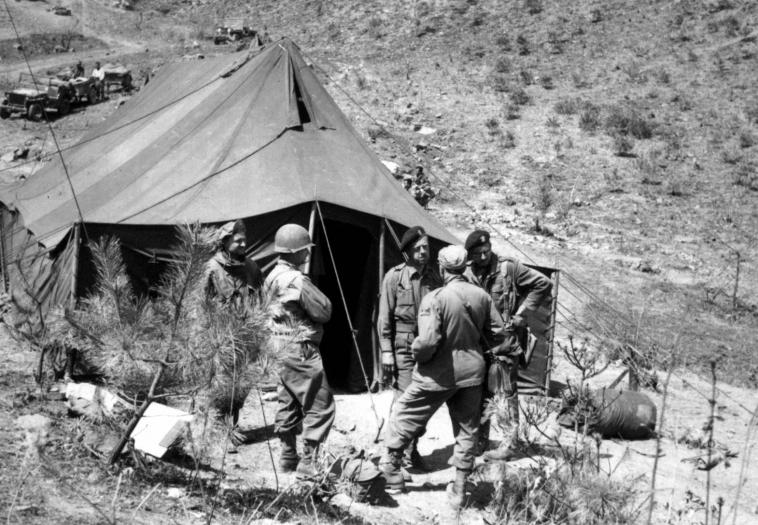Anti-communism in Belgium during the Cold War (2022 - )

With the research programme about anti-communism in Belgium during the Cold War, CegeSoma intends to renew an older tradition within its institution. José Gotovitch and Rudi Van Doorslaer, who successively headed the study centre between 1989 and 2016, not only produced major works about communism, but also about how different Belgian key players have tried to mitigate its influence.
In 1985, Rudi Van Doorslaer and Etienne Verhoeyen published a rather sensational book about the murder of the communist representative Julien Lahaut in the summer of 1950. The authors extensively wrote about the anti-communist atmosphere at the time in which the murder took place and they analysed the ideas about and actions against communism by far-right networks.
Research carried out thirty years later at CegeSoma by Emmanuel Gerard, Widukind De Ridder en Françoise Muller further delved into these issues. Even more so than their predecessors, they placed this murder in the context of the Cold War and its provisional climax after the outbreak of the Korean War earlier in summer.
While there is still much headway to be made in the research about Belgian and Belgian-led anti-communist networks, in the coming years CegeSoma shall predominantly study, under the umbrella of War and Society, a number of anti-communist initiatives either taken by the Belgian government itself or in which it participated.
The focus shall lie on the early years of the Cold War, in particular on the 1940s and the early 1950s. In the middle of the twentieth century, anti-communism had percolated into all walks of Belgian life. Insight into this polarising interpretation framework and its evolution can enable us to better understand how the Cold War was perceived by Belgian society.
Furthermore, we shall investigate how the Korean War resonated among the different spheres of Belgian society. In the summer of 1950, war broke out on the Korean peninsula after troops from the communist North invaded the South dominated by the United States. The American leadership managed to embed the international reaction in an operation of the United Nations, among others because the Soviet Union led an empty chair policy in that institution with a view to the recognition of the People’s Republic of China by the West. Many in Western Europe feared that the conflict in Korea had the potential to lead to a Third World War. Although the Belgian government shared this apprehension, it only decided to form a volunteer battalion after repeated pressures from the United States. In total, an estimated 3,500 Belgian soldiers were thus sent to Korea between 1951 and 1955. Historians have so far paid little attention to their participation in the war and the repercussions of the war on Belgian society.
In the same period, a lot of commotion was caused in the Kempen region around Antwerp by massive expropriations for the establishment of British military bases. In autumn of 2022, the Gondola agreement between the Belgian and British governments has its 70th anniversary. The agreement stipulated – in the midst of the Cold War – the establishment of some four camps and twenty depots spread across the province of Antwerp, while “English neighbourhoods” were set up in the cities of Herentals and Lier. These buildings and lots of land served until the early 1990s as stockpiling area for the British Army of the Rhine that was kept combat-ready in West Germany in the event of a Soviet attack. Many of these British servicemen eventually stayed for some years in the Kempen region and “the Englishmen” provided work for a total of over 12,000 people for decades. This rather less known aspect of Belgian Cold War history shall also be studied in the coming years.